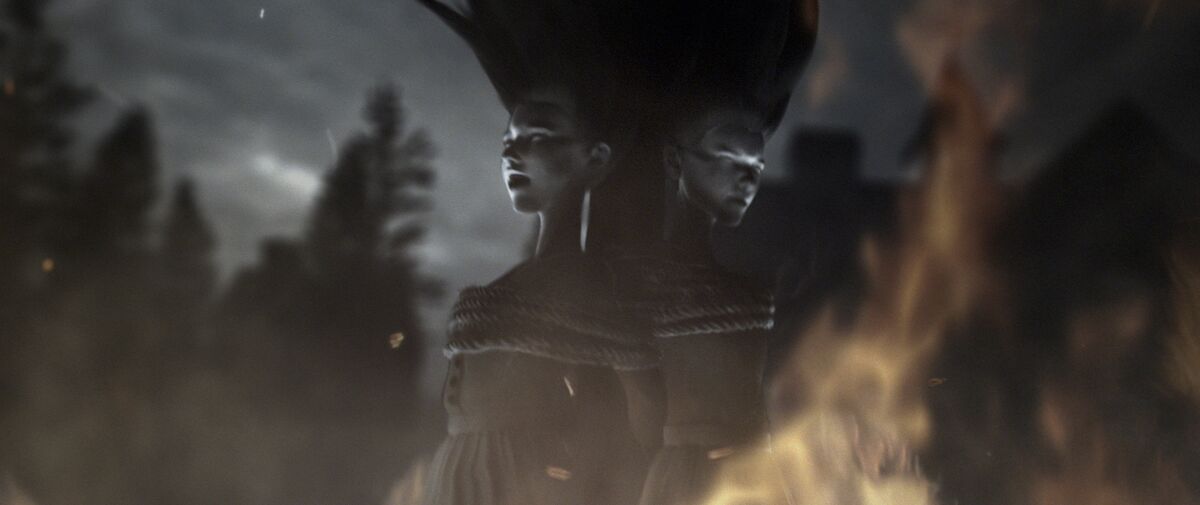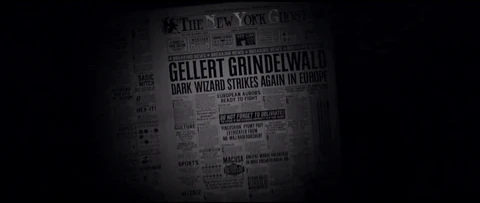Not protagonists, mostly bastards
FIrst, you're still evading. Albus and Scorpius are protagonists by definition.
the principal character in a literary work (such as a drama or story); the leading actor or principal character in a television show, movie, book, etc.; an active participant in an event… See the full definition

www.merriam-webster.com
You could certainly call Scorpius a deuteragonist, but how is Albus not the protagonist?
Second, how are the above characters I listed bastards?
Dunno man, story's not about that
And your point is?
Um, yes, liberal democracies allow elections to be held as opposed to authoratarian regimes which are one-party states.
How terrible.
Yes, you've described tweets showing very little improvement
By what measure? I've cited sources (which weren't tweets), you haven't provided any counter-sources.
Irrelevent. The bureau was fine with this guy ordering executions without trial. Does it make it fine if only the "good guys" have and use that power?
No, that very much is relevant. If someone infiltrates an organization and does something heinous, that carries the default assumption that what they're doing isn't how the organization itself is operating. At most, you can infer that MUSA carries out capital punishment.
It's well established that MUSA isn't a paragon of virtue (e.g. it banning marriage between wizards and muggles), but that's beside the point in the case of the film. Grindlewald is stopped, Joseph and Queenie can't be together, cue tragedy (tragedy the second film undercuts, but the sins of the sequel don't translate to the sins of the predecessor).
A job can suck for one person without having to suck for everybody. He could've just sucked at canning instead of describing the place as a human rights violation that everybody else has to live with.
I don't know what your point is. I've already explained how and why Newt can give Joseph a lucky break, changing the entire canning industry is beyond his purview for the reasons given.
Or in other words, every wizard who survived that meeting, including sactioned governmental agents looking into Grindlewald. You don't need to defend terrible movies like this
I agree the second film is bad (if not terrible) but nothing you've said refutes the point. Again:
1: No-one has any good reason to believe Grindlewald is a reliable source of information
2: The general public is only going to hear rumour about what he said/showed.
3: If the Muggles are killing each other, that's a problem for wizards...how, exactly? War isn't exactly an unknown phenomenon in this world or the IP.
A) what good reason do wizards have to fear muggles for, given they basically have the run of the planet and the Salem witch trials were a joke? B) I'm well aware of the wizard's supremacy problem, it's the catalyst for the dark wizards finding allies in the other non human races. C) A huge number of wizards have muggle families
It's the same war, on the same planet, over the same territory, with the same ideology. Even ignoring that like JK does, it's still *really* bad form to have a major plotline be "we have to stop wizard Hitler from enslaving the muggles and stopping the holocaust."
a) Wizards DON'T have the run of the planet, I've no idea where you're getting that from. It's true that the movies have generally buffed them, but it's clear that the wizards are in hiding. Could they take over the world? Potentially, though that's getting into SpaceBattles-type discussion. Also, the Salem Witch Trials?
The Salem Witch Trials were a series of hearings and prosecutions of people accused of witchcraft that occurred in No-Maj (Muggle) colonial Massachusetts in the years 1692 and 1693.[1][2] The Salem Witch Trials occurred in the settlement of Salem in colonial Massachusetts in 1692 and 1693,[1][2]...

harrypotter.fandom.com
b) Yes, and? Wizards generally distrust Muggles, for reasons that are sometimes understandable, sometimes repulsive. Congratulations, you've stated the obvious.
c) This is the one point that has a grain of truth to it, but I don't see it as a big issue. The more 'magic' you are, the closer you are to power in the setting, and wizards advocating on behalf of muggles aren't going to get far. And while the geographical stuff is technically true, the wizarding world is so isolated it's only by virtue of overlap. Also, it isn't the "same ideology," not in-universe.
d) I don't know where you're getting this major plotline idea. Even leaving aside all the questions as to the wizards' inclination to help, you realize they were fighting a war at the same time, right?
The Global Wizarding War[2] was a large-scale wizarding conflict, which was mainly fought in continental Europe but also took place in other parts of the globe such as the United States of America, coinciding with the Muggle Second World War, and finally ending in 1945. This war was initiated by...

harrypotter.fandom.com
Again, this isn't in dispute, this is canon.
Oh, the universally hated TV ending that caused Game of Thrones to go from decade old cultural phenomenon to the discount aisle overnight
Nice evasion, but however one feels about the ending, I've never seen anyone cite a reason for dislike as being Westeros retaining a monarchy.
Harry Potter very much is, and that's what we're talking about. Y'all brought up Game of Thrones as a deflection
Says the person who brought up Star Wars as a deflection, who's deflected time and time again.
I've brought up other fantasy settings because the stuff you're criticizing HP for is stuff you could criticize countless settings for.
According to Critical, he was talking about D&D orcs, who were decpicted pretty racistly back in the day
Yeah, sure.
and was one of the sillier ways Wizards pissed off the weird nerds when they declared they were going to stop describing sentient, sapient races with free will as Inherently Evil in their sourcebooks
Gee, imagine that, people invested in a setting getting miffed when lore aspects of the setting are arbitrarily changed.




